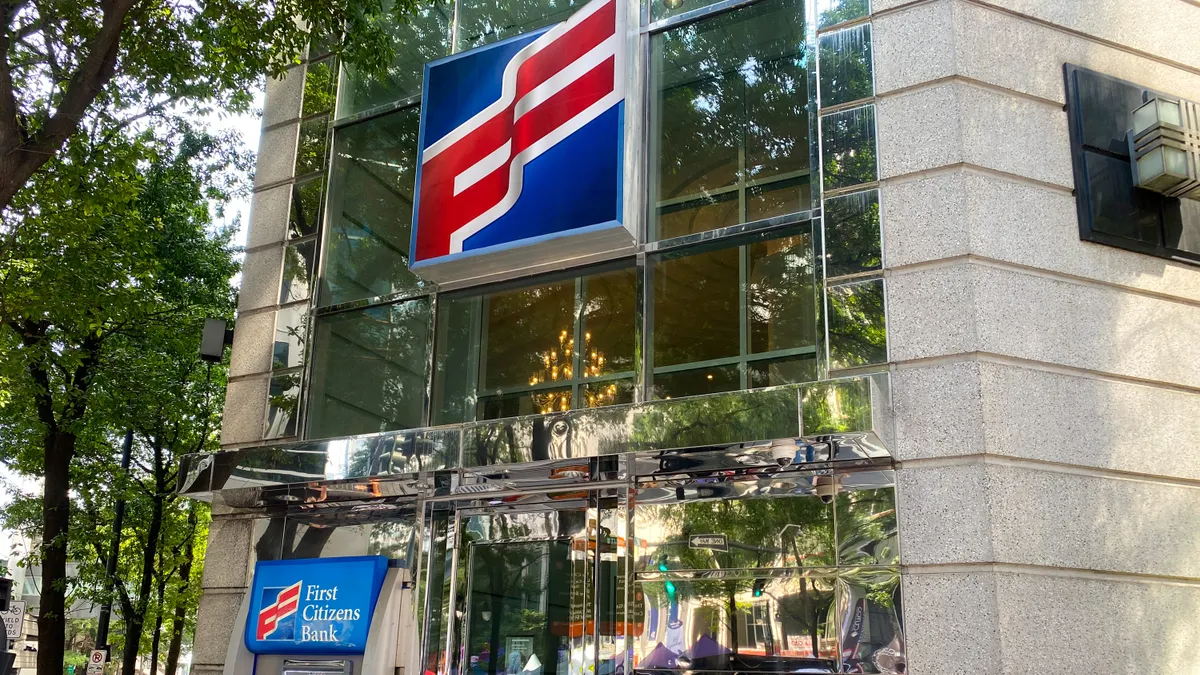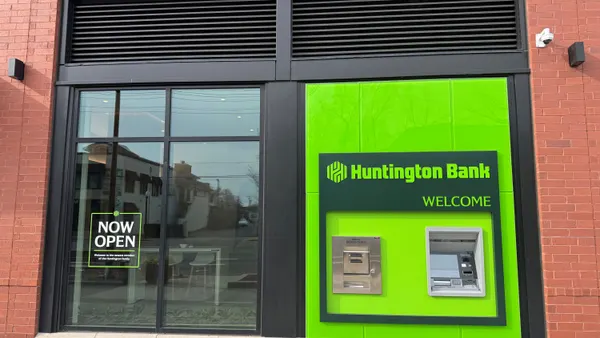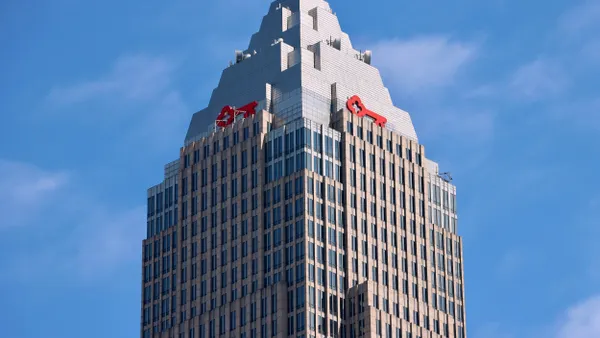Dive Brief:
- First Citizens Bank has entered into an agreement to acquire 138 branches from BMO, the Raleigh, North Carolina-based lender said Thursday.
- The branches stretch across the Midwest, Great Plains and West regions of the U.S. Specifically, the branches BMO is selling to First Citizens are in North Dakota, South Dakota, Wyoming, Nebraska, Kansas, Missouri, Oklahoma and Idaho, as well as some in western Minnesota, one in eastern Oregon, and one in southern Illinois.
- Under the terms of the deal, First Citizens will assume about $5.7 billion in deposits and purchase about $1.1 billion in loans for a net deposit premium of approximately 5% paid on closing, BMO said in a separate release. First Citizens expects the transaction to close in mid-2026, subject to regulatory approvals, with conversion slated for that time frame, too.
Dive Insight:
Amid a recent flurry of bank merger and acquisition activity, the branch-focused deal furthers the Raleigh, North Carolina-based regional’s aim to become a national bank, executives emphasized. First Citizens counts 519 branches across 23 states.
“We are enthusiastic about this opportunity to expand into new markets and offer our client-centered approach in even more regions,” First Citizens CEO Frank B. Holding Jr. said in the release. “This deposit franchise is solid, and we look forward to serving individuals and business clients in these areas.”
The deposit gain is expected to enable $230 billion-asset First Citizens to enhance its liquidity position and offer added flexibility to support strategic initiatives, Holding said. First Citizens plans to retain branch personnel, it said in a presentation on the deal, and new markets for the bank feature similar characteristics to those in which it currently operates.
“Today's announcement underscores our commitment to bringing high-touch service, banking products and deep sector expertise to clients and communities nationwide,” said Hope Holding Bryant, vice chairwoman and head of First Citizens' General Bank.
Toronto-based BMO, which has about 1,000 branches across 23 states, had been exploring selling some U.S. branches, and was considering offloading the locations all together or in clusters, The Wall Street Journal reported last month.
BMO acquired about 500 branches through its $16.3 billion purchase of San Francisco-based Bank of the West in 2023, a deal that took regulators more than a year to approve. That purchase hasn’t been as quickly profitable as originally imagined, though. BMO in January announced its aim to achieve 12% return on equity in its U.S. operations, but as of late July, that figure stands at 8%.
Related to the deal with First Citizens, BMO will record a goodwill charge of about US$75 million (C$104 million) before and after–tax in the fourth quarter, the bank said in its release.
For its part, $1.4 trillion-asset BMO plans to open 150 new branches over the next five years, the bank said Thursday.
The Canadian lender seeks to “densify” its U.S. presence “where it has opportunity to achieve critical mass” and build on its offerings in personal and business banking, commercial banking and wealth management. New branch plans will be “California-centric” although not limited to that state, BMO said.
“We’re sharpening our focus on markets with the greatest potential for long-term growth,” said Aron Levine, president of BMO U.S. “This reallocation allows us to deepen client relationships and deliver the full power of BMO to our clients.”
In 2023, First Citizens leaped into the biggest 25 U.S. banks by asset size, when it acquired $110 billion of failed Silicon Valley Bank’s assets, $56.5 billion in deposits and $72 billion in loans.
Truist Securities analyst Brian Foran called the BMO deal “noteworthy” for First Citizens, partly because it helps lower the bank’s loan-to-deposit ratio – which had risen after the SVB deal – to 87%.
It also suggests First Citizens “can be creative in doing deals,” since the bank has plenty of excess capital, but doesn’t “really have the currency to do traditional bank M&A” based on its stock-trading price, Foran wrote.
On the other hand, the deal gives First Citizens “a weird map,” he wrote Thursday. The company “is kind of three disparate businesses – a Carolinas community bank, the old CIT national commercial lending, and SVB for [venture-capital] banking,” Foran said.
In a digital world, “branch maps don't matter as much as they used to,” he wrote. “Still, it will feed into some investors' perception that this is more a financial holding company than it is a typical bank franchise.”
Another Truist Securities analyst, Brian Finneran, said he fielded questions wondering whether a bank like Billings, Montana-based First Interstate Bank would have made more sense as the acquirer. That lender is eyeing opportunity in Colorado with PNC’s acquisition of Colorado’s FirstBank.













